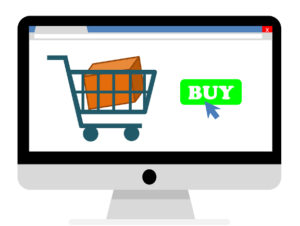
A lot of people don’t know that, in the online business world, “ecommerce” and the online “marketplace” are two different things. Online marketplaces, for sure, are a form of ecommerce, but not all ecommerce businesses are marketplaces.
That might sound a bit odd, at first. Many seem to believe that the two terms are synonyms. In fact, those who are looking to begin an online store are best finding out what these two business models are before they start going further with their plans. Whether you decide to start an eCommerce business or a marketplace business, there is a lot to consider. You want to make sure your business is a success and by implementing the right steps, this is where your business can aim towards. Through tools such as ACH payment processing services for effective online payments, a supportive network and a good marketing campaign, you’ll have your business up and running in no time.
The main difference: taking the prime examples
When people talk about ecommerce, they’re generally referring to sites like eBay and Amazon. But there’s a big difference between the two, right? While the two businesses can find themselves competing, they both clearly work on very different business models.

Amazon is the more common model, and the one that people often mean when they talk about starting an online store. Amazon is actually a supplier – they have a warehouse filled with most of the goods they sell. eBay, on the other hand, is a marketplace. eBay doesn’t sell its own stock – other people are the ones using eBay to sell their own shares. eBay essentially acts as the middleperson. (Although it’s worth noting that Amazon also facilitates other sellers, using their service called – hey, whaddya know? – Amazon Marketplace.)
Which is best for startups?
This article, of course, assumes, to an extent, that you’re looking to start an online shopping business but don’t have a direct desire with regards to how you go about it just yet. Some will have already decided that they want to be a supplier like Amazon. If you’re reviewing your options, then you may be wondering which one comes with less initial cost and which one can bring the most profits in the long-term.

As you may be aware, ecommerce websites are usually the ones that make the most money in the long run. However, they also present the biggest risk because you need to spend so much on overhead as well as inventory. This can be fine for those with enough capital, but a marketplace may appeal to those who need lower starting costs. That’s because you’re not actually buying the stock in question. And if you’re using multi-vendor marketplace software for business owners, then you will find it easier to work with more vendors, which can encourage short-term profit.
Considering brand loyalty
Of course, one of the things that really help businesses thrive is brand loyalty. Customers who love your service will be happier to preach about how great you are to others. You have a lot more control over this aspect if you’re running an ecommerce business. Sure, a lot of daunting responsibility falls into your hands, but when things go right, customers will know it was your hard work.

Now consider something like eBay, a marketplace. More often than not, your positive or negative experiences have little impact on how you feel about eBay itself. It’s the sellers who you actually bought from that get the praise or the flack. Of course, that doesn’t mean the marketplace is a passive thing – you will still need to step in if a seller tries to wrong a customer! This is how you can shine in this area.

